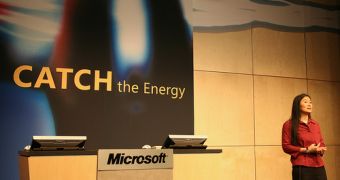The Redmond company announced the next move designed to step up its supercomputing game. In this sense, Microsoft announced that supercomputing expert Daniel A. Reed, the current director of the Renaissance Computing Institute will be joining the company. It is not a coincidence that in the background, Microsoft Research is in high gear with its focus on high-performance and multicore computing. With Microsoft Research, Reed will take on the position of director of Scalable and Multicore Computing. In his new role, he will be directly subordinated to Senior Vice President of Research Rick Rashid.
"Multicore processors represent one of the largest technology transitions in the computing industry today, with deep implications for how we develop software. At the same time, the emergence of software as a service creates new R&D needs for very large-scale datacenters for service delivery," Rashid commented. "Dan brings to Microsoft Research the kind of vision and expertise that will help us unleash the potential of software for these new computing paradigms."
According to Microsoft, Reed expertise in parallel computing and large-scale system design, as well as in the adjacent fields, finds little equivalence at a global level. The Renaissance Computing Institute where Reed served as director before moving to Microsoft Research is the result of a partnership between the University of North Carolina at Chapel Hill, Duke University, North Carolina State University and the state of North Carolina. But Reed's involvement with supercomputing ventures does not by any means stop at this level.
In fact, the new director of Scalable and Multicore Computing at Microsoft Research is also a part of President's Council of Advisors on Science and Technology and of the Computing Research Association. "Two great forces are reshaping computing: multicore processors with unprecedented power and the explosive growth of software services hosted on megascale data centers," said Reed. "There's no better place than Microsoft Research for me to explore next-generation hardware and software designs that address these fundamental technology challenges."

 14 DAY TRIAL //
14 DAY TRIAL //